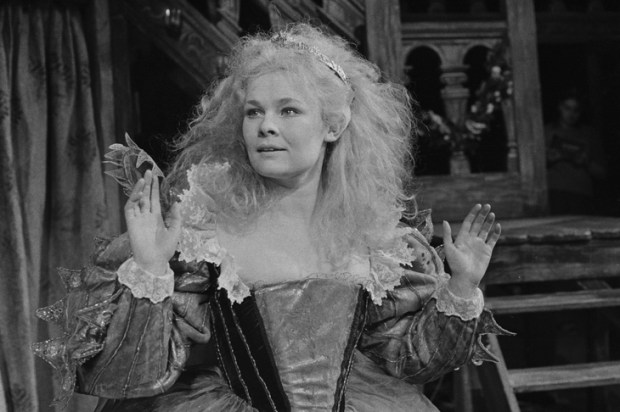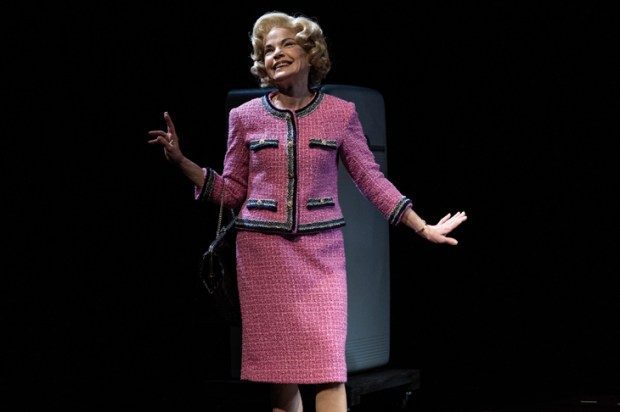So now it is spring and that carnival season with its promise of Melbourne Cups and AFL grand finals hits Melbourne like a wintry joke, freezing in sporadic sunlight. One of my friends, a musical woman of prodigious talent, is walking some fraction of the Camino de Santiago. Another, wise beyond his years, has just completed a stint down the Nile.
The Egyptians have been on show at the National Gallery of Victoria and you could gape into the face of Rameses II himself and ponder the riddle of how a civilisation which intersects with our own can have had such a grandeur and sophistication.
Still, the pyramids, in dawn light or in any light, can seem like an intimation of the Most High. The Valley of the Kings, indeed the whole shebang, made the tough young journalist sing the old Noel Coward song from Sail Away, ‘Why, oh why do the wrong people travel when the right people stay back home.’
Back home in Melbourne the Melbourne Symphony Orchestra is bringing us in November the symphonies of Beethoven. Remember the great Australian cricketer Keith Miller flying for the RAF who flew low over Bonn to see Beethoven’s birthplace? ‘How cool is that,’ Michael Parkinson said in his obit.
It’s as if everything is coming out at once. There’s a new Helen Garner, The Season, for the end of the year as well as Tim Winton’s Juice which may well be a thing of awe if it rivals his immediately previous work. There’s also an essay by Gideon Haigh of a few thousand words which is a masterpiece and there’s an immense book about the late Queen which also falls into this category.
On top of this, we have a book of stories by that extraordinary man of the cinema, Pedro Almodóvar, The Last Dream. The great Spanish filmmaker could not be more different from that maker and maimer of the cinema Jean-Luc Godard but it’s true of him too that the late work starts early. The overtly wacko romps such as Tie Me Up! Tie Me Down! whisper of bigger worlds.
The other day we ventured into Almodóvar again and watched Live Flesh (Carne trémula) from the novel by that high and mighty artist of the thriller, Ruth Rendell. It opens with a sequence years earlier in which a gun is fired apparently by a young man, Victor (Liberto Rabal) which hits David (the young Javier Bardem) and renders him a cripple. There is a hardened policeman, Sancho (Pepe Sancho), who is nothing if not trigger-happy and there is Elena (Francesca Neri) a beautiful frizzy-haired blonde woman. Victor goes to jail for having fired the shot that hit David but he is in fact innocent.
He has done a course in education in prison, he has become a devotee of the Bible (which he quotes in a resounding traditional translation to indicate what an outcast he has become in the eyes of the Moses of Deuteronomy). And he also has a relationship with Clara (Ángela Molina), the estranged wife of Sancho.
None of which begins to explain the lyrical beauty of Live Flesh or the way Almodóvar takes the rapidity of his early work to create a romance which is a work of shimmering wisdom and gravity.
Victor has been left a lot of money by his prostitute mother played at the outset by the young Penélope Cruz and he is full of wonder at how much money she has saved from the sex she had to have whereas he did not have to f— anyone.
Almodóvar uses the techniques of fast fire metamorphosis to create a kind of dream cavern of love and pain. A young man in white underpants might almost be the lamb of God. A woman’s scream turns out not to be the voice of panic but the contractions that herald her labour.
Everything becomes an emblem of something else yet this moral universe is steady and credible at every point. The glimpse of full bare breasts and the kneading of buttocks are never pointless comic twists but tokens of an enacted knowledge in which the viewer constantly re-awakens her faith, in the face of every wind that blows.
How Almodóvar managed to evolve this idiom with its maturity and tenderness and its all-inclusive transfiguration of pain leaves us dumbstruck at the power of an art so ripe and so unpredictable at the same time. At the level of structure and surprise developments he is still a magician pulling things out of a hat except that the upshot has a power and a glory we perceive as real.
And that’s true in a wholly different sense of Gideon Haigh’s My Brother Jaz which is a delineation by the distinguished cricket and business journalist of the inconsolable grief he suffered at his brother’s death. He prayed when prayer seemed a futile parody of Pascal’s wager. He took photos of himself pulling a silly face, he held to the power of his love for his mother and he never forgave anything wrong done to him.
The woman he comes to love is like a tempest. She sits with him during an operation. She makes him learn to ride a bike and then even more terrifyingly to drive a car. It all scares him yet he has never met someone who is such a vehement whirlwind of love.
With her its all or nothing yet, he says, she finds the break up immeasurably easier to cope with than he does.
My Brother Jaz is only a few thousand words yet it is an extraordinary work of the imagination, comparable in its depth of apprehension with the highest level of poetry. It is a great work of literature costing not less than everything. Gideon Haigh discussed it at Readings in Carlton with Sally Warhaft.
Craig Brown’s A Voyage Round the Queen could scarcely be more different but it is also – heaven help us – a masterpiece, even though it takes the form of a kind of history of the world told in a thousand anecdotes about this compelling woman forever asking questions.
It becomes a fabulous portrait from a thousand angles. It’s illuminating that the charismatic Ted Hughes adored her and that E.M. Forster was charmed by her. Only with the horses did she once on a famous occasion lose it.
Got something to add? Join the discussion and comment below.
You might disagree with half of it, but you’ll enjoy reading all of it. Try your first month for free, then just $2 a week for the remainder of your first year.













